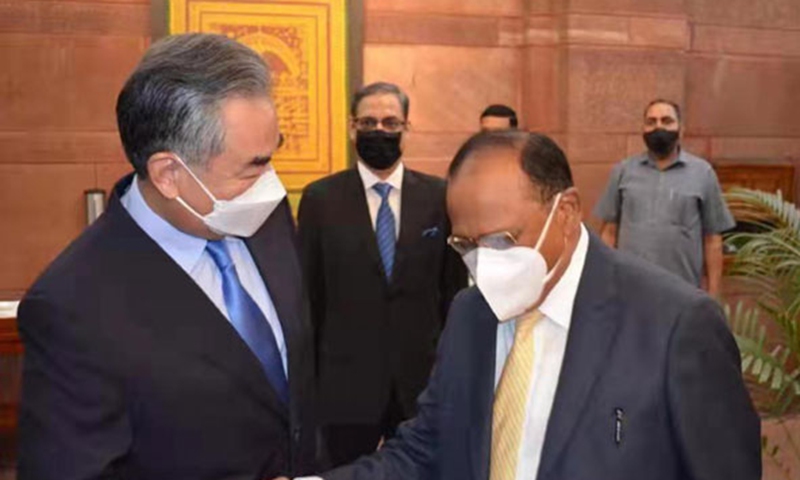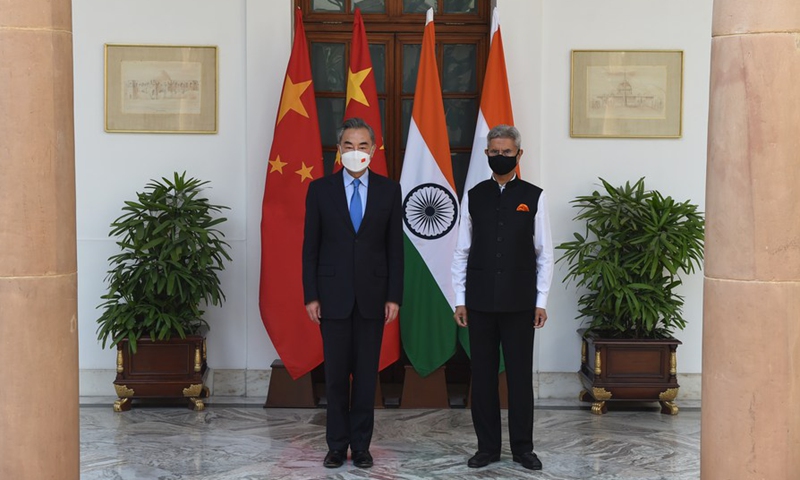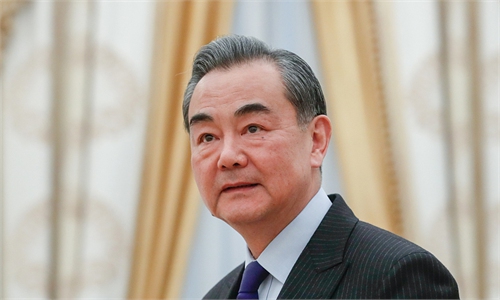China and India should put border issues at a proper position in bilateral ties: Chinese Foreign Minister

Photo: Ministry of Foreign Affairs
China and India should stick to their own development paths and join hands to safeguard peace and stability both in the region and the world, putting their differences over the border issues at a proper position in the bilateral relations, Chinese State Councilor and Foreign Minister Wang Yi said during a meeting with Indian National Security Advisor Ajit Doval on Friday.
Putting their differences over the border issues "at a proper position" in the bilateral relations indicates that we should put the border issues at an important position, but they should not serve as the precondition or the basis for bilateral relations, experts said.
During the meeting, Wang proposed a three-point approach for correctly directing the bilateral relations between China and India including the suggestion that both sides should view these relations from a long-term vision.
China and India should adhere to their two leaders' strategic judgement that China and India should not be a threat to each other, but an opportunity for each other's development, and put their differences over the border issues at a proper position in the bilateral relations, Wang said.
"Some Indian media outlets said India's ties with China cannot be normal until the border dispute is addressed. That mentality is improper," Lan Jianxue, head of the Department for Asia-Pacific Studies at the China Institute of International Studies, told the Global Times on Saturday.

Visiting Chinese State Councilor and Foreign Minister Wang Yi (L) talks with Indian External Affairs Minister Subrahmanyam Jaishankar in New Delhi, India, March 25, 2022.Photo:Xinhua
China and India affirmed the outcomes from the corps commander level meetings and the diplomatic consensus between the two countries, and agreed to speed up the resolution of individual issues left over by history, properly manage the situation on the ground and avoid misunderstanding and misjudgment.
The two sides also agreed to abide by the agreement reached in 2005 between the two governments on the political guiding principles for the settlement of the China-India boundary question, resolve the border issue through consultations in a peaceful and friendly manner, and refrain from using force against each other.
Wang underlined that the special representatives on the China-India boundary question should maintain communication and exchanges, press for the shift from emergency response to regular management and control on the border issues as soon as possible, and stay committed to properly managing the border issue so as to seek a fair and just solution.
By proposing the three-point approach, the Chinese side hopes that both China and India should focus on cooperation and manage their disputes, which will be conducive to promoting national interests of both countries, experts said.
Also, China and India should view each other's development with a win-win mentality. China and India should forge a cooperation model with a healthy interaction, so as to achieve mutually beneficial and win-win cooperation at a higher level and in a wider range, Wang said.
Both countries should take part in the multilateral process with a cooperative posture. The two sides should step up communication, coordination and mutual support to send more positive signals for upholding multilateralism and inject more positive energy into improving global governance, Wang said.
This approach is in line with the "three dos and three don'ts" for China-India relations Wang put forward in 2021. Wang hopes that China-India relations can overcome the negative impact of the Galwan Valley conflict, so that both sides can devote more energy to other urgent tasks, Lan said.
If India can follow China's approach, viewing the border dispute in a pragmatic and rational way, and focusing its efforts on promoting the common interests of the two countries and seeking common ground, bilateral relations between the two countries will go more smoothly. China-India relations are very promising, but India should adjust some of its thoughts, Lan noted.
Wang's trip to India as well as his three-point approach can help improve China-India ties. Against a backdrop of the Ukraine crisis, failing global governance and emerging economies battered by COVID-19, if Beijing and New Delhi can refocus on cooperation, both countries will heavily benefit from it, according to experts.
"China has made great efforts in this regard and has taken the first step and it is believed that India will follow suit. The smooth exchanges between the two countries will help them reach a bigger consensus on regional hotspot issues in their following meetings such as BRICS and SCO summits," Lan said.

